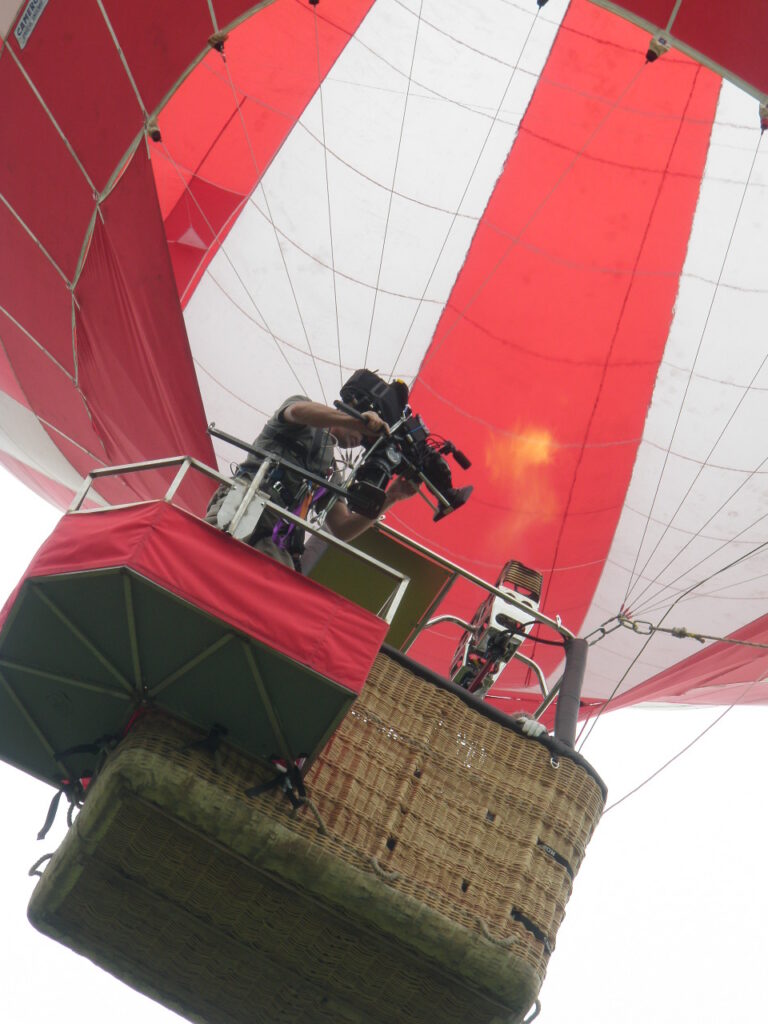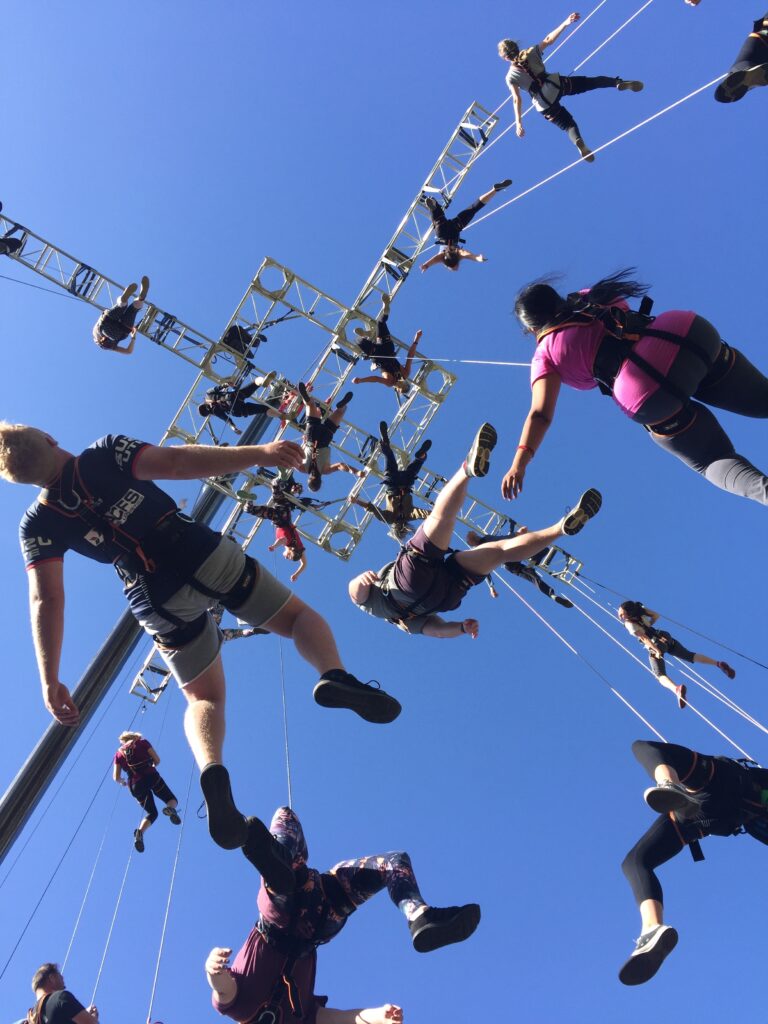Expert Advice And Assistance

Primarily, a suitably experienced safety officer is someone who assists the production with achieving compliance by providing advice on the latest [1]CoP and [2]regulations. Ideally, the safety officer will be down on the floor ensuring that crew and cast are safe from any errant activity by other members of the crew or other entities in the area and assisting practically where appropriate.
They are there to offer advice to other departments so they too can achieve safety & compliance. Obviously, industry experience is crucial here. For example, construction safety regs would not necessarily apply in our business or any other. A lack of understanding regarding acceptable practices in this industry often will lead to disputes and an unhealthy disconnect from the safety department.
The safety officer will also direct what safety documents need to be generated and ensure that they are compliant and are signed off.
Risk Sharing
Employing a suitable safety officer also provides a substantial measure of risk-sharing. When a safety officer makes decisions on your behalf, they are assuming some of that liability, that is factored into the fee structure. Ideally, the safety officer will hold “professional” insurance, similar to a doctor or lawyer’s malpractice insurance. It is an additional layer of protection for you and your client.
Risk Tracking
The safety officer should be required to “risk track”. That is ensuring that the shoot stays on the risk assessed script within reason. In my experience, more than once, a client or Director has had a great idea that involves the main talent jumping on a horse or quad-bike. You know, just to spice up the shot. This is the time to step in and stop the activity. Can you imagine the losses should the main talent be injured for a shot that was not planned, a last-minute idea. Your personnel, an entire production and the brand are all being placed at risk for very little gain. Perhaps, 100 million dollars worth of risk! Let’s see what the issues are, no risk assessment was carried out supporting the activity. No idea whether the talent is capable of the task. No training and rehearsal and more often than not the conditions are not ideal. This is where the safety officer earns their keep.
It is very difficult to do your job and preserve quality of life and the brand without coming into occasional conflict. The safety officer must be well versed in “where the line is” and how to assist in getting a shot without going over it. More than once I’ve had a Mexican stand-off over such issues, and when the emotions clear, the client has thanked me for standing my ground and working out a suitable compromise.
Ultimately though, I am an advisor. You can disregard my advice, but your legal department and your insurer would prefer you didn’t!
Coordinator And Conduit
A well trained and industry experienced safety officer will be the liaison between the various departments and specialist activities on set. Especially when it comes to technical areas like aviation, marine ops or special effects and stunts. The safety officer should be able to talk the same language as the specialists and convey or interpret information from the specialists to the Director and production and visa-versa. Increasing safety all around and saving time and confusion. For example, producers will get a quote from a contractor for a technical build, however, the language between the two is misunderstood and the quote is drastically different from what it should be. I will pick up on this discrepancy and intervene to make sure the work is exactly what we want and not something completely different or inadequate. With technical projects, the producers understandably, cannot be expected to know what to ask for precisely, terminology is specific to each area of expertise. And the contractor is unaware of how we work on the ground and what is actually required to have the shoot work inside the budget. The safety officer can and should be able to bridge that gap and ensure each party knows exactly what they need to achieve the shot (in the case of the producers) and what must be provided (in the case of the supplier). On the day the safety officer will continue to assist the Director by relaying technical advice and direct the contractors to meet the objective. This is especially relevant on projects where the contractors are more likely not going to be industry specialists; shoots like TV reality shows and documentaries.
Risk Assessments
For many, safety compliance is all about writing or obtaining a risk assessment (RAs). Unfortunately, there is a perception that this is all you need to do. To clarify, producing a risk assessment document is not the intent of the regulations. However, carrying out a risk assessment process is. And the risk assessment document that results from this process is merely the written evidence of that process. It is actually illegal to tender generic risk assessments in lieu of conducting a proper consideration of the hazards and controls. Such documents are most likely to be thrown out in court and the tendering of such documents will most likely be an aggravating factor. This means that they will compound the offence. E.g. Many people do purchase filled in forms from the web. This is about avoiding the process, going around the process.Though I’m sure, many people are unaware that what they are doing is wrong.
You must know what your on about! If you do not understand the subject for which you wish to achieve a safe outcome, then you’re not going get there by providing generic RAs without having given thought to the present dangers. Often you need to be a “subject matter expert” to identify hazards and controls, or you must get someone who is, to advise you. FYI, most WHS training[3] only provides the basic skills to “facilitate” a risk assessment process in the company of subject matter experts.
The Experts In Our Industry
[4] The industry norm and best practice is for your report writer to have at least 10 years’ experience in a senior industry role before becoming a safety officer. That’s essential, because typically the industry model leaves very little time and resources to [5] facilitate a report. The expectation is that the safety officer is an industry expert and they will lead and advise through years of experience and academic training. Our RAs and safety reports must be written from a position of authority, experience and skill. Otherwise, the advice cannot be considered comprehensive or valid. Generally, the crew will not respect the process if the report appears to be full of “filler” and un-targeted advice.
Wearing my other hat as an expert witness, I have seen the worst examples of reports, written by unqualified people. Reports that have led to serious injury and loss of quality of life.
[1] Code of Practice
[2] These regulations are on the internet. But a good safety officer will know the most common regs by heart.
[3] Even at degree level
[4] The MEAA union prescribes this and WorkSafe on occasion have concurred with me directly.
[5] Where a basically trained WHS Cert IV or a degree holder might have a meeting to brief and debrief every HOD and technical trades person, because they do not have a valid expert view themselves. In my time in mining and heavy construction, this is what I had to do for every major activity and it took several days of discussion alone. This is a luxury that cannot be afforded productions generally, and why the report writer must be an expert beyond reproach for the document to be original and valid.
